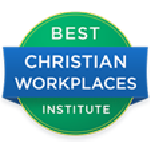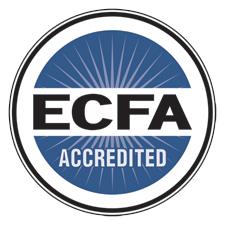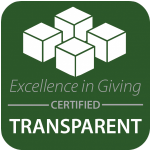In the latest episode of Build Relationships, Break Poverty, we share powerful stories from the Kabermaido CarePoint, which is located in Eastern Uganda. This episode features two inspiring CarePoint graduates, Richard and Alice, who reflect on how the CarePoint transformed their lives. They discuss the support they received through difficult times, opportunities for education and growth, and more. Listen as they share how they discovered their passions for giving back to their community.
Additionally, Community Relationship Manager Isaac Okwang talks about the rewarding progress he sees daily at the CarePoint. He describes the journey of the children, from the moment they enroll in the programs to their graduation. Join us for an uplifting 20-minute conversation about hope, determination, and leadership!
“Be encouraged that this effect is actually multiplying and going on to many more people than the directly sponsored that we have in the program”
– Isaac Okwang, Community Relationship Manager for HopeChest Uganda
Don’t miss out on this inspiring story about raising up local leaders to create a ripple effect of support and empowerment within their communities!


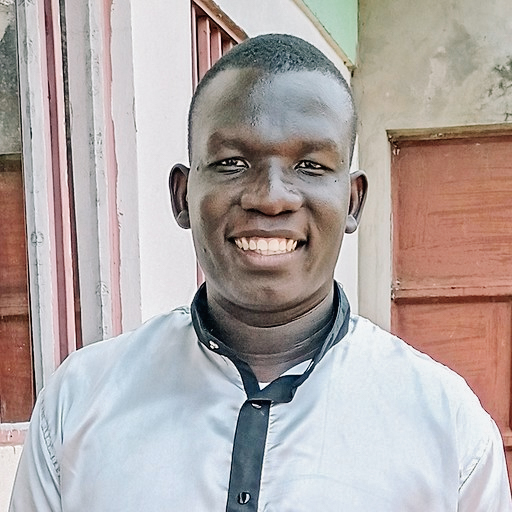
“Build Relationships. Break Poverty.” is a podcast that challenges the Western perception of international poverty by elevating the voices of local leaders and processing how we can help to alleviate poverty without harming those living in vulnerable communities.
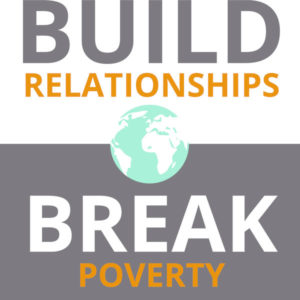
You can download and subscribe to “Build Relationships. Break Poverty.” here:
Apple Podcasts | Spotify | Stitcher | Google
Episode Transcript
Wil Crooks: Welcome to build relationships break poverty, a podcast hosted by children’s Hope Chest. This podcast challenges the Western perception of international poverty by elevating the voices of local leaders each month. It’s our desire to share stories from people around the globe who work tirelessly to see vulnerable communities transformed. We believe that building two way relationships will break the cycle of poverty. I’m well Crookes, Vice President of Strategic Partnerships at Hope Chest. For nearly 15 years, I’ve had the privilege of fostering relationships with churches and businesses to create global impact. And again, joined by the host of greatness. Anna, welcome.
Anna Kerr: Thanks to well, it’s so good to be back. Our show today is going to be awesome. You guys, our listeners are going to love it. We talked to three storytellers from the Hope Beyond Borders event last week, and it was a really good conversation, we got to dive a little deeper than the event covered. So it was a fun conversation. And we’ll actually be posting the link to the recording of the event and next steps in the show notes if you guys want to hear more from them. So without further ado, here is our conversation!
Anna: Today, we are joined with three guests, Isaac, Richard and Alice from Uganda. And two of these guests are actually graduates of Coppermine auto CarePoint in Uganda. And we are looking forward to hearing their stories and how they were impacted from the chair point and how they’re taking that impact and multiplying it in our community. And we’re just really excited. So hey, Richard, how are you doing? How do you feel being on the podcast today?
Richard: I’m really upbeat because little did I know that I was going to share my success story with all the world today! Because I used to be seen in our community as someone who would not succeed…but through their support and from HopeChest and Kaberamaido CarePoint; it has made me to be who I am today.
Wil: Tell us a little bit about your story. You know, you had some challenges growing up, didn’t you?
Richard: I had a lot and a lot of stories I had a lot and a lot of challenge in my life. I lost my father in 2006 when I was very very before I started is calling. And that time I started living with my mother alone. And since my mom is a PISA is the farmer, she does the most skilled farming not even a big farming because we are a small piece of land, whereby when whatever she could apply cannot manage to raise my school face. Whenever I try to go to school, until the time of examination, they just just me back. I cannot it breaks your weight for the next time again, you’ve got the same story. By the time HopeChest came into my life a bit a lot and a lot and a lot.
Because at that moment, I didn’t have classes. When objects come they gave us to assess when they give me even the ratio of meal food we are lacking. But they say time they started supplying us with new food in villages. So things worked well. Now from there, HopeChest started paying my tuition from primary to secondary. I did a course in welding and metal fabrication. From the course I did welding and metal fabrication.
God blessed me and I got a company which employed me and I started working with the company. When I started working with the company, they were paying me some money, I decided to say that well, how can I use this money? How can I help my friends? How can I help the community? There that led me to open customer business? When I opened that’s the guy when when I open a guy right? I say that objects, there are very many people who are vulnerable you can about objects cannot get all of them in rural areas where they are.
But since God has blessed me, and they recruited me when I was provided, oh can I give back to the community? I opened that customer garage right now the others and they are also the same challenge I have. By now they come data, Mr. Richard, the truth and the reality. I want schooling. My since I was schooling, no way I can get the support. And my earnings vary. I said I know the best thing I can give you. You’re calm and you’ll get killed from me. When you learn how to repair motorcycles. You learn how to do well. Something like fabricating doors, windows, I think they can get you where, whereby as I talk right now in my story, I have two boys who are working with me. Out of the two boys, one is learning. And soon before the end of this month, I will be having again another one who doesn’t know, even how to change the oil. But when that one come, you will also get trade from the guy right and I don’t charge them. I just give them the skill. And that’s the way I’m giving back to the community. Rather committee of Calgary Mido, because I based in Sarathi. There isn’t one. Wow, I’m so lucky because I want to get these reports to get what support like are being supported. Because I believe very well, for the best of my knowledge that most of you didn’t know me that. Little did you know that you’re going to meet Richard? So I’m also now meeting their faces, which I don’t know. And they had when they heard that you had to ask me that. They’re very apt. I’m getting out.
Wil: Yeah, that’s powerful Richard. So you went from your father dying when you were about 12 years old. And I think you have seven siblings. And so a big family, you weren’t able to go to school because you couldn’t pay the school fees. HopeChest came in with uniforms, was paying for your education, and you’ve done amazing things…started your own mechanic shop, and now you’re employing people. One of the things I’ve heard you say is people want to be like, Richard. And so that’s one of the ways that you give back, isn’t it of people looking up to you?
Richard: Yeah, that’s what I’m doing. Because I want them to learn that when you give, you can gain, but then you become to add for it to gain right me guys stay an example. I told him in a way that when I lost their dad, life was really really very hard. No way I could start since we are very many the formula, there we are, we are saving the family. And our mom could not get anything. But if options could have said that for you to join the project, you have to pay something, my mom could have not money to pay and life was going to be really hard. And that very tender, add the joy, the joy, as everything I’m still doing. I say that I cannot judge anyone because our God has blessed me. If we set up Jesus, I would have I would have not acquired what I have right now. No, I welcome that. I want to pay this man yesterday, someone that I don’t to pay, but only what I want, I want you to learn. After learning. When you got your skill, you take my skill out, you teach others and they also learn. And in my garage, you when you come there, you’ll find that most people that I’m dealing with the they’re also offered to find someone that’s another that someone that’s another father, maybe someone that’s another mom, but they say that we have to learn the art of giving and we have to serve the community. like no one is planning also to open a garage and you say that okay, I want also to open by I told him that when you are going to open for me, I will not charge you anything. But going the same, the same speed. Don’t charge them so much. If I were to charge you just tell someone to get on this panel. So that you come while they are you having us on stone for work. And so you train I will give so. And that’s the best thing I’m giving back to the community.
Anna: Wow, Richard, I love your heart. And what a powerful question to ask, “how can I get back to my community?” You are a great example of that and mentoring younger men who are in your shoes, maybe don’t have a father. That role. I would love to ask what are your dreams for your business? It sounds like you have a big dream to expand your business. Can you tell us a little bit about that?
Richard: My dream is to become a teacher. That’s why I started by now being practical eldest was well partners in the community. I instruct them I teach them how to build what’s right. And that girl must extra expand so that it can every community those who are who are come and run while gonna rebel like oh, yeah, help me you learn so free, I don’t charge anything. But I have to go for my final studies, I get my knowledge and I come on sub damnatio you’ve got that my desire to give the heart of giving out as I had to have.
Wil: Thank you. Yeah, that’s so powerful. We all need mentors, you know, in our lives. And I can I can think about the teachers, you know, that that had impact in my life. I can remember, you know, Doc frylinck and Randy valen God and things like that, that just open doors. And so this idea of giving back to the vulnerable giving back to your country is so inspiring. Thank you so much, Richard.
And I think, Anna we’re gonna be just as inspired with this next story, aren’t we? Yeah, we are. So we want to introduce now, Alice, why don’t you come forward? and share your story.
Alice: My name is Alice Ayad. I am appear to share with the world, my success story, the time I lost my father, I was still a young girl. I was serving a challenge. There was no school fees. There was no food. And life was difficult. There were seven children in our family, five boys and two girls, but my mom was not able to support our family. By the time I learned about Hope Chest up chest and helped family to grow. They helped two people from our family, I and my brother Francis. By the time I joined HopeChest from primary 4, up to vocational skills education, I could not be able to talk in the community.
By the time I began tailoring and event management, I was not even dreaming of being a teacher. Our director was close to me. She told me, “I want you to teach my girls.” I said, “How will I do it?” At that time, she called me and encouraged me that I want you to be teaching my girls. And I accepted but I will not too happy. Because I was fearing out like Monday, older Saturday, five girls, and increasing their night.
By that time I started teaching life was moving on and on. They started increasing my salary. And I say, “Glory to God”, because there is nothing I was doing. But today, I feel confident of teaching, I am so happy to teach the community.
Anna: That’s awesome, Alice. It’s so encouraging to hear how you grew in confidence, that your salary was growing, and how that has just made you even more confident. What is your favorite thing about teaching other women who were in your shoes? What’s your favorite thing about teaching them how to tailor and sew?
Alice: When I’m helping other girls, I could teach them and encourage them that you’re supposed to be like me. And don’t be with your knowledge without helping your friend without encouraging your friend.
Do that show your friend that do this. And this because there is no way you’re going to save close without helping your friend neighbor near his friend. You need to help are unsure what to do. Sometimes that cannot be they can’t even remain alone. You can help your friend so that you can gain more strength so that you can add more knowledge.
Wil: Yeah, that’s excellent. You know, Alice you finished first in your class. And then your teacher said I want you to teach others. When did you know that? You know you were really good at this skill of tailoring?
Alice: the way no did then they called me and they gave me my certificate because my work was so semantically and all people were happy with me in the community they could bring from because even those some people they want I don’t know why they know my name. But for me, I don’t know them. But they could come and call me. They could ask my friend that with Alice. I said I’m here.
Yeah, that’s right. People know your name and are able to see you through some of the skills that you have in tailoring for sure.
Wil: Wonderful. So what’s your dream? What do you hope to do with all of this tailoring expertise?
Alice: I want to continue to help other girls, but I still like to have [my own sewing school] so that I can teach and I earn my own money.
Anna: That is powerful. I would love to ask you Alice and Richard what is one piece of advice that you would give to others in your shoes maybe a younger version of Alice a younger version of Richard to encourage them.
Richard: Thank you. Thank you for that question. And I love that question really everyone in Uganda Oh you do your thing. That’s the only way they know you. If you do good things, they will know you’re in good things. If you do bad things, they will know it bad things. So what I normally tell them is the way oh you have known me place that you are I been assembled in the in that very line. You also get to be known like our not since they normally tell them that if Bill Gates well known in the Ahlawat I would like it to be well known. Joseph Cole is well known all over I would like it to be well known but it doesn’t mean I won’t be like just a point. I say that out to be what Saba is well known for good things. So now I’m trying to maintain I am and their dream that I will just say that if some people that are well known that you just yeah, they are never to garner them. How can you be how can I make it so that I’m trying to maintain my record to make that everyone get to know me for the good things, and the others also copied from me And that’s the what we ask the community and the entire tuaca. Very often, they want to be known for the good things. That’s why we like reach out he gives back to the community.
Anna: That’s great. What about you, Alice?
Alice: My advice, my fellow friends, is to show respect to our teachers community under work together, without jealous, and I could advise them that they’re supposed to be determined and confident of what they’re doing. They should have their dreams so that their dreams can live that tomorrow.
Wil: Thank you, Alice. And as Anna said, at the beginning, we’ve got three guests. So we’re gonna bring on Community Relationship Manager, Isaac, who is well known to a lot of our listeners. Isaac, you know, you hear stories about Richard and Alice and where they’ve come from in their success. This is just a, you know, a snapshot or a picture of what you all are doing in the development work in Uganda, isn’t it?
Issac: Oh, yes. Thank you so much Wil and Anna, and Richard and Alice who are here with us and our listeners, thank you so much for the opportunity.
It is so amazing to hear stories like those of Alice and Richard, because it speaks into the impact of what we are doing in their lives. And this is not possible. Without your support for its to happen in this children’s lives, we get opportunity to see how their lives like you also have seen them from the time that they are profiling to the program, where they look to be so hopeless without any kind of hope for future.
And then as we give them time, and as we nurture them, and take them through the programs that we have to see them reach to a level where they are also able to give back to the community is so amazing. And it is so rewarding. It is what keeps us moving, I stopped because you know that there is something that is happening. And it has a ripple effect. Beyond just the children that were actually touching, they are now testing the whole community, even beyond on average. So thank you so much, again, for one that support.
Wil: Isaac, I think you nailed it right? There is yes, we hear the individual success stories of Richard and Alice. But this is about entire communities being transformed, isn’t it?
Issac: Yes, this is actually about community because like you heard from each of them. Alice has six other siblings behind her that are now defended and supported by her, because she is now able to earn a living. The other six now have a shot at the future that is at least better than they had when they lost their father. Richard himself was our siblings behind him that are now dependent on him. But then they are each able to reach out to many other people in the community. Alice’s teaching 35 other girls, Richard is having a printer instance that he’s also teaching at his workshops to learn these skills free of charge. So the effect is much more felt outside beyond the direct beneficiaries that we’ll have in the program. So be encouraged that this effect is actually multiplying and going on to many more people than the directly sponsor and that we have in the program.
Anna: I love that message be encouraged, the impact does not stop at the individual. I love that. Thank you so much, Isaac, and thank you, Alice. Thank you, Richard. And thank you everyone for joining us and listening to this episode of Children’s HopeChest, Build Relationships, Break Poverty. You can follow us on Instagram, Facebook, and Vimeo. If you haven’t yet, go to Apple podcasts to subscribe rate and review our podcast


